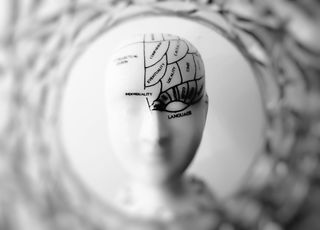Child Development
Why Your Childhood Really Matters: The Hidden Epidemic
Research reveals that common childhood events can reverberate into adulthood.
Posted June 28, 2019 Reviewed by Devon Frye

Clients are often unaware of the effects of their childhood. In my practice, many report that they had a “good childhood” only to discover that they endured stressful or even toxic events as children. Often, what happened to them many years ago is why they are seeking counseling today.
These stressful events, referred to as Adverse Childhood Experiences (ACES) include divorce, parental separation, alcoholism in the home, and physical and emotional abuse, among others. In the first revealing landmark study two decades ago, researchers were dismayed at both the prevalence and the profound impact of stressful childhoods on physical and mental health in adulthood (Anda & Felitti, 1998).
Historically, the impacts of childhood trauma have been unrecognized in the psychiatric community. Van der Kolk (2015) called this a “hidden epidemic” and has advocated for the new diagnosis of Developmental Trauma Disorder in the most recent iteration of the Diagnostic and Statistical Manual of Mental Disorders (DSM-5). He asserted that the myriad of diagnoses assigned to both adults and children are in fact based on the impact of toxic or stressful childhoods. In addition, research has shown that not only do these traumatic childhood experiences have a profound effect, but they are also extremely common.
For example, these experiences are found across socioeconomic status. The majority of our criminal justice population have histories of childhood abuse and neglect. However, this epidemic does not discriminate: Research supports that ACES are quite common among all races and socioeconomic classes, including in white and middle/upper-middle-class upbringings. Regardless of those affected, the evidence is clear: Increased ACES or stressful childhood events have pervasive and long-lasting consequences into adulthood that impact several areas of functioning.
"Children’s exposure to Adverse Childhood Experiences is the greatest unaddressed public health threat of our time." —Robert Block, American Academy of Pediatrics
Long-Term Effects
Researchers have studied the impact of ACES and have found that these experiences can cause a lifetime of mental and physical health consequences. These include not being able to sleep soundly as an adult, difficulty concentrating, increased depression, anxiety, and eating disorders in adulthood. Higher ACES scores are linked to adult physical health issues such as heart disease, cancer, stroke, irritable bowel syndrome (IBS) and skeletal fractures. Behavioral consequences include increased adult suicidal ideation, sexual promiscuity, relationship problems, and alcohol or substance abuse.
How could these events have such long-term consequences on both mental and physical health? A possible explanation is derived from the field of neuroscience, positing that stressful childhoods and early maltreatment have effects on brain development.

Impact on Brain Development
The field of neuroscience helps explain brain dysregulation in childhood. The more stressful events in childhood, the higher correlation to potential structural changes within the brain.
For example, research supports that stressful childhoods are correlated with changes in the prefrontal cortices and the amygdala. These changes can perpetuate reactive and irrational responses. Further, the thalamus and anterior cingulate cortex—areas responsible for emotional control and regulation—may also be affected regions of the brain. Additionally, Poletti and colleagues (2016) found that stress can cause changes in the hippocampus and that trauma histories are associated with decreased hippocampal volume. Mental health disorders associated with decreased hippocampal volume include bipolar disorder and major depressive disorder.
What Are ACES Risk Factors?
- Emotional abuse (verbal conflict, belittling, berating, fighting, name calling)
- Parental separation or divorce
- Alcoholism within the household
- Mental illness in the household (including a narcissistic parent)
- Intimate partner violence
- Mother treated violently
- Physical abuse/neglect
- Sexual abuse
- Chronic medical issues/procedures
Psychotherapy, counseling, and traditional talk therapy may help both children and adults address their childhood trauma. Other therapies that may help "rewire the brain" include Neurofeedback and EMDR (Eye movement Desensitization and Reprocessing). It is vital to find a trauma-based therapist who can help tailor a treatment plan appropriate for the client and their unique circumstances and history. This may also include other therapies that help with emotional dysregulation, such as Dialectical Behavior Therapy (DBT) or Cognitive Behavior Therapy (CBT).
This article was originally published on www.drtracyhutchinson.com
Facebook image: Kylie Walls/Shutterstock
References
Baldwin, D. (2018). Neurocounseling: Bridging Brain and Behavior. American Counseling Association.
Campbell, J., Walker, R., & Egede, L. (2016). Associations between adverse childhood experiences, high-risk behaviors, and morbidity in adulthood. American Journal of Preventive Medicine, 50 (3), 344 – 352.
Felitti, V. J., Anda, R. F., Nordenberg, D., Williamson, D. F., Spitz, A. M., Edwards, V., . . . Marks, J. S. (1998). Relationship of childhood abuse and household dysfunction to many of the leading causes of death in adults: The Adverse Childhood Experiences (ACE) Study. American Journal of Preventive Medicine, 14(4), 245-258.
Poletti et al. (2014). Effect of early stress on hippocampal gray matter is influenced by a functional polymorphism in EAAT2 in bipolar disorder. Progress in Neuro-Psychopharmacology and Biological Psychiatry, 51(3), 146-152.
Poletti et al. (2016). Adverse childhood experiences associate to reduced glutamate levels in the hippocampus of patients affected by mood disorders. Progress in Neuro-Psychopharmacology and Biological Psychiatry, 71(3), 117-122.
Van der Kolk, B. A. (2005). Developmental Trauma Disorder: Toward a rational diagnosis for children with complex trauma histories. Psychiatric Annals, 35(5), 401-408.
Van der Kolk, B. (2014). The Body Keeps the Score: Brain, Mind, and Body in the Healing of Trauma. New York: Viking.
https://www.cdc.gov/violenceprevention/childabuseandneglect/acestudy/in…


